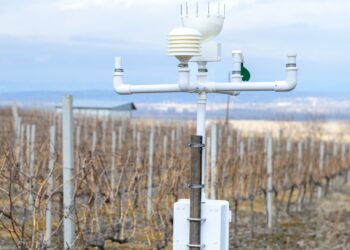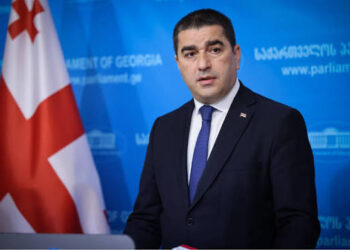Russian President Vladimir Putin’s investment envoy Kirill Dmitriev met with US officials in Washington on Wednesday as the Trump administration continues to press Russia and Ukraine to agree to a ceasefire, two US officials familiar with the matter said.
Dmitriev, a Stanford-educated former Goldman Sachs investment banker, is one of the most US-savvy members of Russia’s elite, with close relations to some key members of the Trump team. He is the highest-ranking Russian official to travel to the US on state business since Russia’s 2022 expanded invasion of Ukraine.
It was not clear what Dmitriev discussed with the US officials, but his visit comes after President Donald Trump expressed his frustration with the pace of ceasefire talks, saying on Sunday he was “pissed off” with Putin, and raising the possibility of imposing sanctions on those who buy Russian crude oil. Russia is the world’s second largest exporter of crude oil after Saudi Arabia.
Steve Witkoff, a Trump envoy who has taken the lead on the Trump administration’s contacts with the Kremlin, invited Dmitriev to the United States last week. The White House directed the State Department to issue a short-term license for Dmitriev to travel to the country, a necessary step as Dmitriev faces US sanctions, the officials said.
Dmitriev could play a crucial role in mending relations between Moscow and Washington, which, until Trump’s inauguration in January, had reached their lowest point since the most perilous moments of the Cold War.
The Russian envoy was involved in early US-Russia contacts following Trump’s 2016 election, and helped foster ties with Saudi Arabia, leading to an oil price agreement under the expanded OPEC+ producers’ forum.
Notably, on Wednesday, the Trump administration excluded Russia from a sweeping list of countries facing major new tariffs. Meanwhile, Ukraine was hit with a 10% levy, based on a White House fact sheet.
Trump has voiced frustration with Ukrainian President Volodymyr Zelensky, accusing him of attempting to renegotiate a minerals deal.
In recent weeks, Dmitriev has highlighted several potential areas of cooperation between Russia and the United States, including investment, rare earth minerals, energy, the Arctic, space, and collaboration with Elon Musk.

Russia says it has captured a village in Donetsk
Russia this week claimed it had captured a village in Ukraine’s eastern Donetsk region.
The Kremlin’s defense ministry said its forces had taken control of Rozlyv – which has become the focal point of their advance through the area.
Ukraine’s military said Russian forces launched five attacks on Rozlyv and the nearby village of Kostiantynopil, but made no acknowledgement that Rozlyv was now in Russian hands.
Intense fighting continues on Ukraine’s eastern flank, particularly in Donetsk and Luhansk, as Russia seeks to seize full control of the region. However, no significant breakthrough has been achieved.
Other important battlefield developments:
One person was killed and two others injured in a Russian overnight attack on southeast Ukraine’s Zaporizhia region, Regional Governor Ivan Fedorov said.
A Russian ballistic missile strike on Ukraine’s Kryvyi Rih killed at least four people and injured 14 others, including two children, Ukrainian authorities said.
An infant, a seven-year-old boy and six others were also injured in a drone attack on Ukraine’s Kharkiv region, said Oleh Syniehubov, the region’s governor. Kharkiv’s Mayor Ihor Terekhov said 15 drone strikes were carried out in the region.
At least 60 people were forced to evacuate from their homes in the Russian city of Kursk after falling debris from intercepted Ukrainian drones hit their apartment buildings, acting governor, Alexander Khinshtein, said.
Russia’s state news agencies TASS and RIA Novosti report that Russian forces destroyed 93 Ukrainian drones overnight, most of which were destroyed over the Kursk region.
The Ukrainian air force said it shot down 41 of 74 Russian drones launched towards Ukraine overnight. Another 20 drones failed to reach their targets due to electronic jamming measures, the air force said.
Ukrainian President Volodymyr Zelensky said nearly 4,000 people were left without electricity after a Russian drone hit a substation in Ukraine’s northeastern Sumy region, and artillery fire damaged a power line in the central Dnipropetrovsk region.
Moscow’s Ministry of Defense accused Kyiv of hitting Russian energy facilities twice in the past 24 hours despite a mutual moratorium on energy strikes brokered by the United States.
Kremlin’s demands for peace contradict Trump’s goals – ISW
Russia’s demands for peace contradict what Donald Trump wants to achieve, the Institute for the Study of War (ISW) reports.
In its latest update, the US-based think-tank notes that senior Russian officials are continuing to reiterate the Russian demand for the elimination of the “root causes” of the war in Ukraine as a precondition for a peace agreement.
This is a “reference to Russia’s initial war demands” that contradict Donald Trump’s goal to achieve a lasting peace in Ukraine,” the ISW says.
The ISW states that Russia’s deputy foreign minister Sergei Ryabkov had claimed on 1 April that the Trump administration is attempting “some kind of scheme” to get a ceasefire before moving on to achieve an end to the war.
The Kremlin official claimed that the Trump administration’s plan to resolve the war in Ukraine does not address the “root causes” of the war and that Russia cannot accept the US proposal.
The Kremlin’s demands for the “full capitulation of Ukraine with the installation of a pro-Russian government in Ukraine and long-term commitments of Ukrainian neutrality” are the same demands Putin made at the beginning of the war, the ISW points out.
Compiled by Ana Dumbadze














